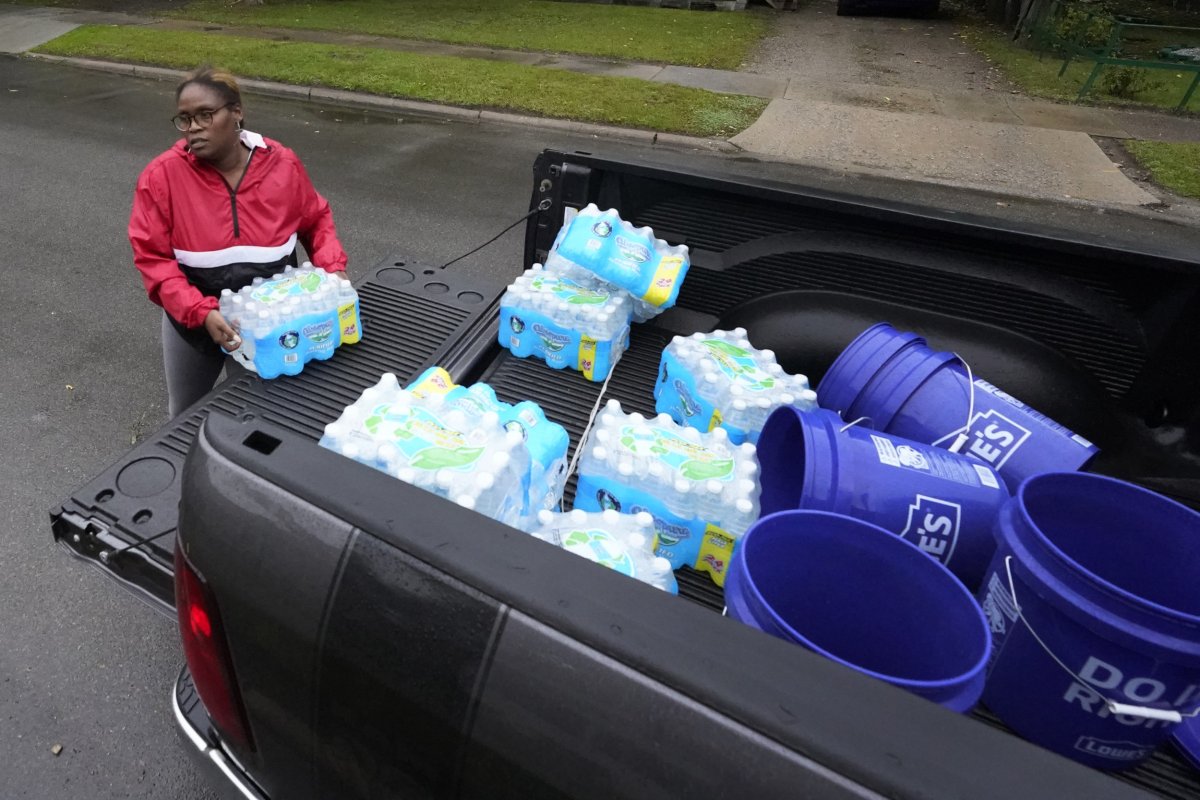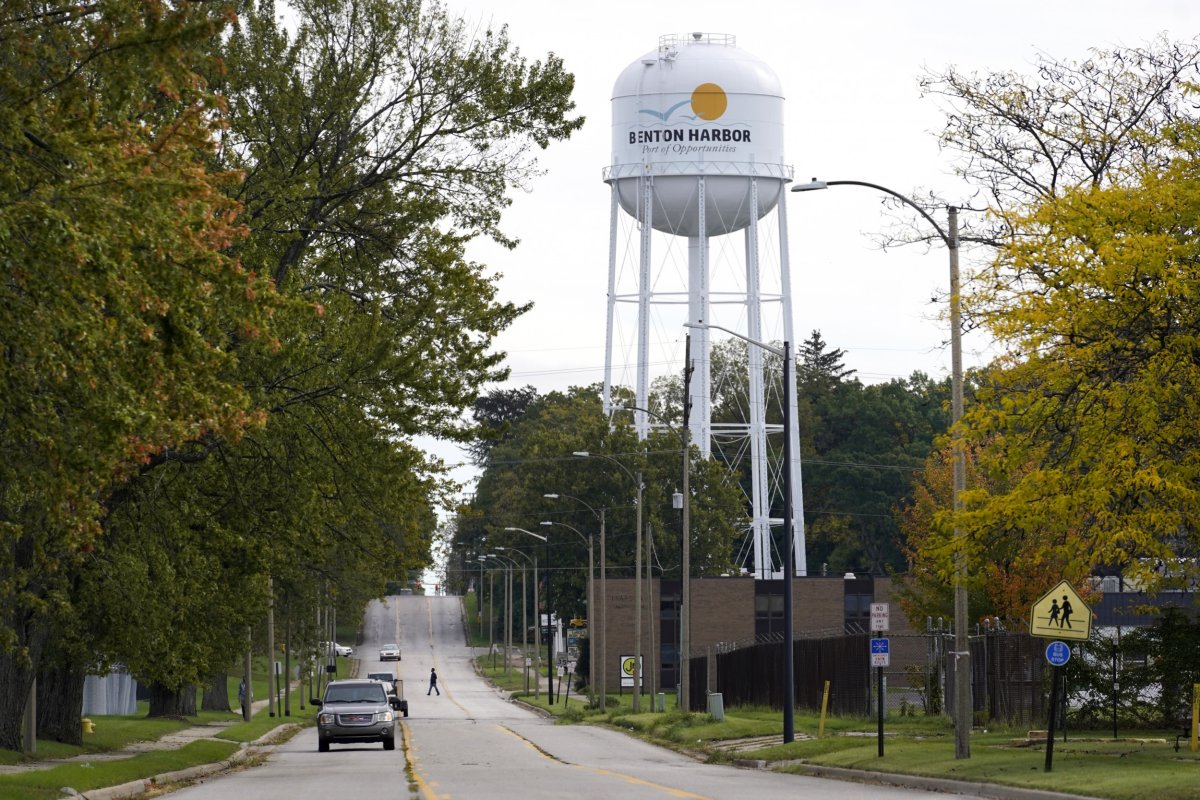The lead levels in Benton Harbor's water are going down due to the corrosion control for lead pipes, but residents are still continuing to drink and cook with bottled water out of caution.
Michigan officials said the corrosion control prevents lead from coming off the pipes and leaching into the drinking water. The measure is starting to help but roughly 10,000 people are still using bottled water.
Drinking water contaminated by lead pipes isn't a new occurrence for the state. Flint has been experiencing a similar issue with lead-contaminated drinking water for nearly seven years.
In 2014, the city of Flint changed water suppliers and used the Flint River as a temporary way to save money. The river water was treated incorrectly and scraped lead off the pipes, infecting the water. Residents immediately raised concerns about their health.
The severity of the problem wasn't discovered until 2015 when water samples were collected from homes by the Environmental Protection Agency. The EPA declared a state of emergency the following year. Because of that, Michigan passed strict requirements for reducing lead in drinking water.
In 2019, residents in Benton Harbor were given at-home filters to remove lead from tap water. But in October, officials said they were reviewing how effective the filters were and to use bottled water in the meantime.
Eric Oswald, director of the drinking water division at the Michigan Department of Environment, Great Lakes and Energy, said when the study for the filter is complete officials will make a decision if bottled water should continue to be used.

Oswald said preliminary results indicate that when filters are installed correctly, they are working properly. Taylor Gillespie, an EPA spokesperson, said filters often aren't installed properly in part because residents haven't been shown how. She said data won't be available until February.
Benton Harbor's recent water system tests reveal 15 parts per billion of lead; any more and it would exceed Michigan standards. Testing from earlier in the year produced levels of 24 ppb.
"Everything is going to continue as it has previously, it's just that the data is showing us that the corrosion control is working. We need to keep at it, keep improving it and keep working at it," said Oswald.
The highest site sampled had 48 ppb of lead. Testing from earlier in the year produced a few results in the 100s of ppb.
Lead levels in the majority Black city's drinking water are now just within standards set by the state that if exceeded, force a utility to take corrective action and inform residents of a problem, according to state officials. Residents have worried about the effect on their families' health, as lead can slow cognitive development and is especially dangerous for children.
Nicholas Leonard, executive director of the Great Lakes Environmental Law Center whose name is on the petition, said Benton Harbor has suffered from discrimination and a history of disinvestment in its infrastructure.
"That no doubt played a central role in creating this problem," Leonard said previously.
The state's response accelerated this fall. In addition to providing bottled water, Michigan Governor Gretchen Whitmer has promised to replace all of the city's lead service lines, which connect buildings to the water main, within 18 months—far faster than is normal. That effort is just getting underway.
The state provides free bottled water for Benton Harbor's residents, but picking it up can be time consuming and tasks like cooking can quickly use up personal supplies. Homebound residents can ask for deliveries.
The Democratic governor in November ordered a review of the state's drinking water rules with the aim of reducing lead levels further. Also, the EPA ordered the water system to make improvements.
Cyndi Roper, a senior policy advocate with the environmental group Natural Resources Defense Council, said the state should continue providing free bottled water until lead service line replacement is finished and all water quality concerns are addressed.
"Fifteen parts per billion is still high," she said. "This is a long and ongoing lead in drinking water crisis in the community of Benton Harbor."
Across the U.S., millions of lead service lines are underground. The recently passed infrastructure bill secured $15 billion for lead service line replacement and the reconciliation package pending in Congress includes billions more—money that advocates have said is vital but will not be enough to remove every lead pipe.
The Associated Press contributed to this report.

Uncommon Knowledge
Newsweek is committed to challenging conventional wisdom and finding connections in the search for common ground.
Newsweek is committed to challenging conventional wisdom and finding connections in the search for common ground.
About the writer
To read how Newsweek uses AI as a newsroom tool, Click here.






